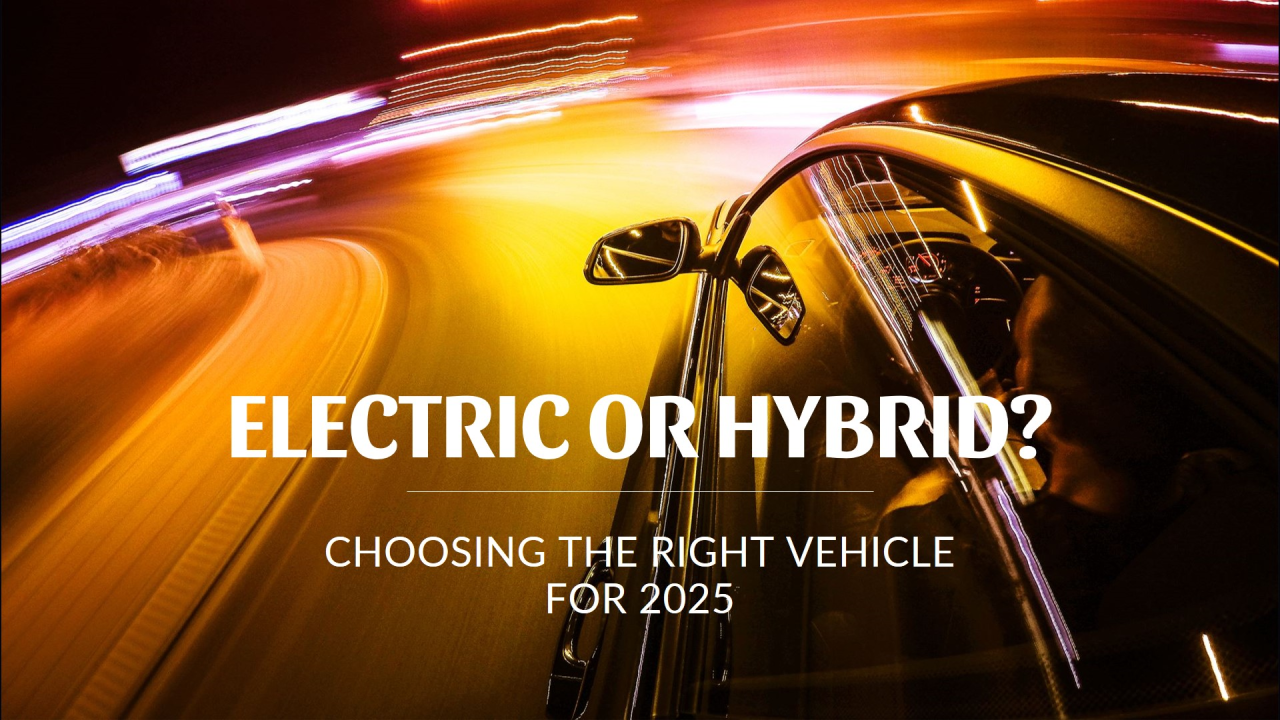Hybrid vs. Electric: Which is the Better Choice for 2025?
As we move into 2025, the debate between hybrid and electric vehicles (EVs) continues to gain momentum. Both options offer unique benefits, but understanding their differences is crucial for making an informed decision. Hybrids combine a gasoline engine with an electric motor, providing flexibility and extended range, while fully electric vehicles offer zero emissions and lower operating costs. This landing page will help you navigate the key factors to consider when choosing between these two innovative vehicle types.
Benefits of Hybrid Vehicles
Hybrid vehicles are an excellent choice for those who want to reduce their carbon footprint without sacrificing convenience. With a hybrid, you can enjoy the benefits of electric driving while still having the option to use gasoline when needed. This means fewer trips to the charging station and greater peace of mind on long journeys. Additionally, hybrids often come with tax incentives and rebates, making them a financially savvy option for eco-conscious drivers. Explore our selection of hybrid vehicles and discover how they can fit into your lifestyle.
Advantages of Electric Vehicles
Electric vehicles are rapidly gaining popularity due to their environmental benefits and lower operating costs. By choosing an EV, you contribute to reducing greenhouse gas emissions and promoting sustainable energy. With advancements in battery technology, many electric vehicles now offer impressive ranges, making them suitable for daily commutes and longer trips alike. Plus, the cost of electricity is generally lower than gasoline, leading to significant savings over time. Learn more about the advantages of driving electric and how it can benefit you.
Key Differences Between Hybrid and Electric
When deciding between hybrid and electric vehicles, it's essential to understand their key differences. Hybrids utilize both a gasoline engine and an electric motor, allowing for greater flexibility in fuel options. In contrast, electric vehicles rely solely on electricity, which means they produce no tailpipe emissions. Additionally, hybrids typically have a longer range due to their gasoline backup, while EVs may require more planning for charging on longer trips. Consider your driving habits and preferences to determine which option aligns best with your needs.
Cost Considerations for 2025
The cost of owning a vehicle is a significant factor in your decision-making process. While electric vehicles may have a higher upfront cost, they often come with lower maintenance expenses and fuel savings over time. On the other hand, hybrids can be more affordable initially but may not offer the same long-term savings as EVs. It's crucial to evaluate your budget, potential incentives, and long-term financial goals when choosing between these two options. Our team is here to help you navigate the costs associated with both hybrids and electric vehicles.
Environmental Impact
Both hybrid and electric vehicles contribute to reducing environmental impact, but they do so in different ways. Hybrids reduce emissions by using less fuel, while electric vehicles eliminate tailpipe emissions entirely. As the world shifts towards renewable energy sources, the environmental benefits of driving an EV will only increase. By choosing either option, you are taking a step towards a more sustainable future. Join the movement towards cleaner transportation and make a positive impact on the planet.
Conclusion: Making the Right Choice
Ultimately, the choice between hybrid and electric vehicles depends on your individual needs and lifestyle. Consider factors such as driving habits, budget, and environmental priorities when making your decision. Both options offer unique advantages that can enhance your driving experience while contributing to a greener future. Our knowledgeable team is ready to assist you in finding the perfect vehicle that meets your requirements. Start your journey towards a more sustainable driving experience today!

